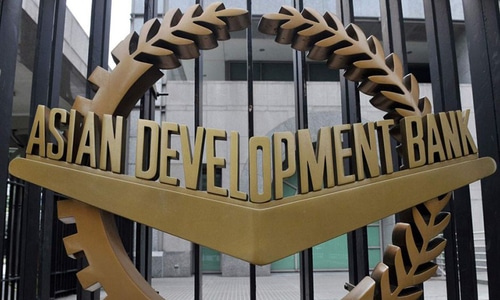The Asian Development Bank (ADB) has identified political instability, security concerns, and external shocks as major threats to Pakistan’s economic recovery.
In its latest report, the ADB emphasised that structural and institutional challenges, including inefficient land acquisition processes, procurement delays, and the lack of counterpart funds, continue to delay the readiness and implementation of crucial development projects. Additionally, currency and price fluctuations further complicate the situation.
The ADB stressed the importance of regular tripartite portfolio review meetings between the government, the ADB, and executing agencies to address these ongoing project-related challenges. These meetings are seen as vital in resolving the hurdles to timely project implementation.
A major concern highlighted by the ADB is Pakistan’s tax-to-GDP ratio, which remains significantly low due to a narrow tax base and the large informal economy. The bank pointed out that continued fiscal consolidation and broad-based policy reforms are essential to improving the country’s economic stability and growth.
In particular, reforms targeting the expansion of the tax base, state-owned enterprise restructuring, and improvements in health, education, and climate resilience are necessary for achieving sustainable recovery. The ADB also stressed the importance of strengthening private sector engagement, promoting high-value exports, and enhancing social spending, especially in critical sectors like health, education, and energy.
As of December 31, 2024, the ADB had committed $43.4 billion in loans, grants, and technical assistance to Pakistan. The bank’s current sovereign portfolio includes 53 loans and three grants, totaling $9.13 billion. In 2024, the ADB provided financing for several key projects, including climate and disaster resilience programs, energy sector projects, post-disaster reconstruction efforts, and public-private partnerships. Notably, the ADB committed a $500 million policy-based loan for the Climate and Disaster Resilience Enhancement Program, aimed at strengthening Pakistan’s institutional capacity for disaster preparedness and climate resilience.
The ADB has also provided significant support for Pakistan’s flood recovery efforts, approving a $400 million concessional loan for the Sindh Emergency Housing Reconstruction Project. This initiative aims to rehabilitate flood-damaged homes and infrastructure, helping communities recover their livelihoods. As part of a broader commitment, the ADB is providing a total of $1.5 billion in assistance from 2023 to 2025 to support Pakistan’s recovery from the devastating 2022 floods.
The ADB’s non-sovereign transactions in Pakistan also play a vital role, with outstanding balances and undisbursed commitments amounting to $234.94 million as of December 2024. These figures represent 1.82% of the ADB’s total private sector portfolio. Cumulative sovereign and non-sovereign loan and grant disbursements to Pakistan now total $33.44 billion, financed through a mix of regular and concessional resources from the Asian Development Fund and other special funds.
Looking to the future, the ADB’s forthcoming country partnership strategy for 2026-2030 will focus on addressing Pakistan’s key challenges, including climate change, digital transformation, and social sector development.
The strategy will support the government in implementing vital structural reforms and improving economic resilience through a robust pipeline of public-private partnerships and private sector development projects. This pipeline will focus on building climate-smart infrastructure, mitigating climate change impacts, and improving governance and social services to foster inclusive growth.




